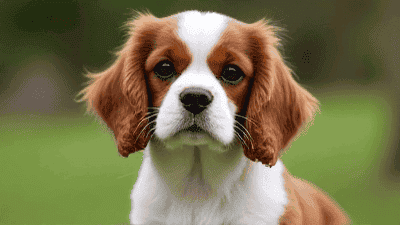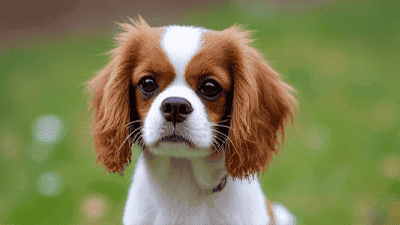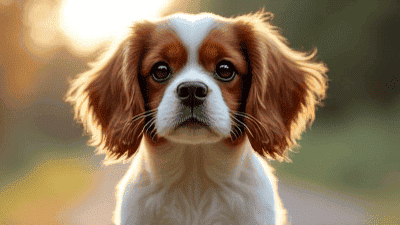
The Cavalier King Charles Spaniel is a breed that captures hearts with its sweet expression, gentle nature, and affectionate personality. Known for their elegance and companionship, these small dogs have become popular among families, singles, and seniors alike. However, owning a Cavalier King Charles Spaniel comes with specific responsibilities to ensure they thrive.
The Cavalier King Charles Spaniel traces its roots back to 17th-century England, where it was a favorite among royalty. King Charles II was particularly fond of the breed, often seen with his spaniels by his side. These dogs were bred to be companions, lap dogs, and hunting partners for small game.
Over time, the breed’s appearance changed due to crossbreeding with flat-nosed breeds like the Pug. In the 1920s, an American named Roswell Eldridge offered a prize to breeders who could recreate the original spaniel with a longer nose and flatter skull. This effort led to the modern Cavalier King Charles Spaniel.
The Cavalier King Charles Spaniel is now recognized by major kennel clubs worldwide and remains a beloved breed for its friendly demeanor and adaptability.

Cavaliers are known for their loving nature. They thrive on human companionship and form strong bonds with their families. They are often described as “velcro dogs” because they love to stay close to their owners.
This breed is highly sociable and gets along well with children, other pets, and even strangers. Their friendly disposition makes them poor guard dogs but excellent companions.
Despite their small size, Cavaliers are playful and enjoy activities like fetch, walks, and even agility training. They have a moderate energy level and are happy to adapt to their owner’s lifestyle.
Cavaliers are gentle dogs that are well-suited to households with children or other pets. Their patient nature makes them easy to handle and train.
Cavaliers are small dogs, typically weighing between 13 to 18 pounds and standing 12 to 13 inches tall at the shoulder.
Their silky, medium-length coat comes in four color variations:
Cavaliers are known for their expressive, dark eyes and long, floppy ears. Their sweet expression is one of their most endearing traits.

Cavaliers require regular grooming to keep their coat healthy and free of tangles:
Despite their small size, Cavaliers need daily exercise to stay healthy and happy:
Cavaliers are intelligent and eager to please, making them relatively easy to train:
Feed your Cavalier a high-quality, balanced diet formulated for small breeds:
Cavaliers are prone to certain health conditions, including:
With proper care, Cavaliers typically live between 9 to 14 years.

Cavaliers adapt well to apartment living due to their small size and moderate energy level. However, they still need daily exercise and mental stimulation.
Cavaliers are excellent family dogs and get along well with children. Their gentle nature makes them a great choice for households with kids.
This breed is well-suited to seniors because of their manageable size and affectionate personality. They make wonderful companions for older adults.
Cavaliers are social dogs that typically get along with other pets, including cats and other dogs. Early socialization is key to fostering good relationships.
If you’re considering a Cavalier, seek out a reputable breeder who prioritizes health and temperament. Ask for health clearances and meet the puppy’s parents if possible.
Consider adopting a Cavalier from a rescue organization or shelter. Many wonderful dogs are in need of loving homes.
The cost of a Cavalier King Charles Spaniel puppy can range from 3,500, depending on the breeder and location. Be prepared for ongoing expenses like food, vet care, and grooming.
Yes, Cavaliers are a great choice for first-time owners due to their friendly, easygoing nature and relatively low maintenance.
Cavaliers do shed, but regular brushing can help manage loose hair and keep their coat healthy.
Cavaliers generally get along well with cats, especially if they are introduced properly and socialized early.
Cavaliers need at least 30 minutes of exercise daily, along with mental stimulation like playtime or training.
The Cavalier King Charles Spaniel is a delightful breed that brings joy and companionship to any household. Their charming personality, affectionate nature, and adaptability make them a popular choice for families, singles, and seniors alike. However, it’s important to understand their care needs, including grooming, exercise, and health considerations, to ensure they live a happy and healthy life. Whether you’re a seasoned dog owner or a first-time pet parent, the Cavalier King Charles Spaniel is a wonderful addition to any home. With the right care and attention, this breed will reward you with unconditional love and loyalty for many years to come.